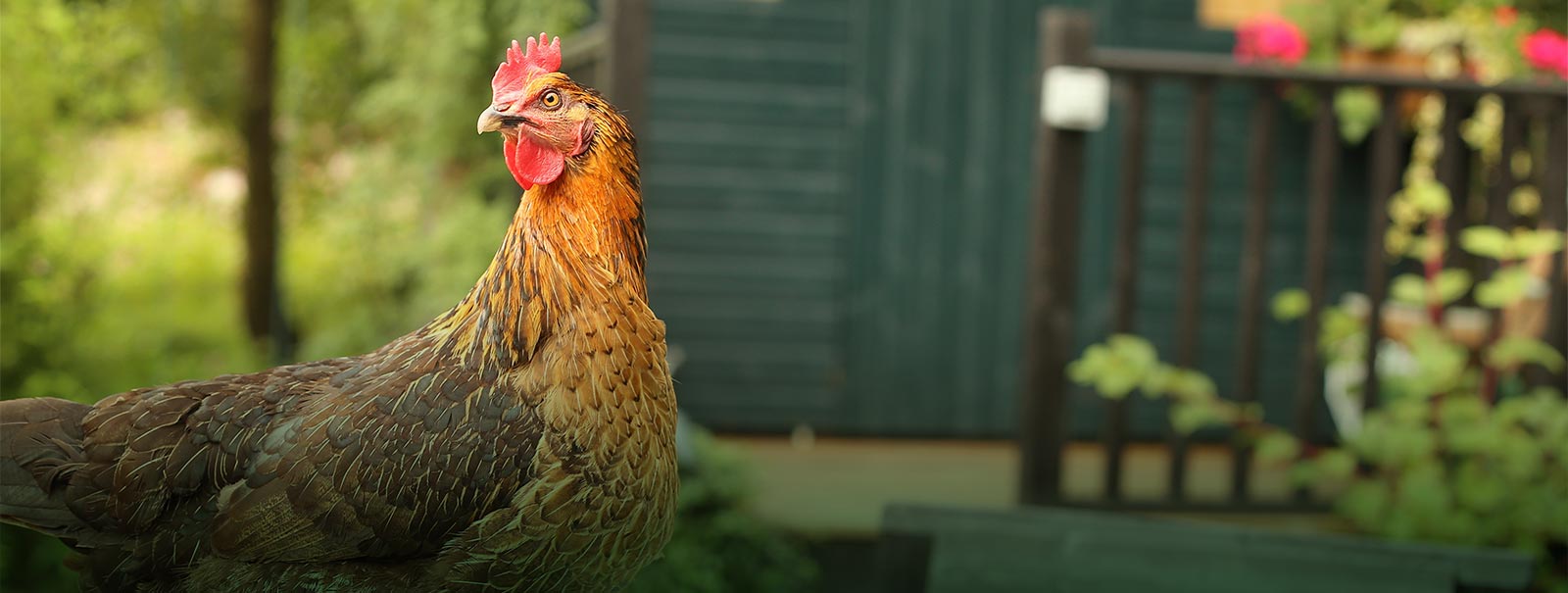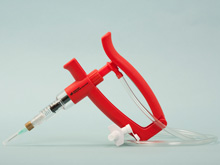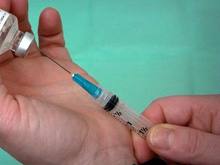
The advice hub Vaccination
The demand for vaccination of backyard flock has increased with the popularity of keeping chickens.
Why should we vaccinate?
Vaccination is used in commercial poultry flocks to control disease which would otherwise devastate the laying flocks throughout the World. Commercial flocks are therefore protected as a matter of course for the key poultry diseases during their rearing period, the time before they get to the laying farm. Some laying farms continue to vaccinate depending on any specific diseases they may be experiencing on discussion with their vet. Backyard or small flocks are on the whole unprotected and can therefore spread disease. Rare breed breeders may wish to vaccinate to protect their long line of genetics they have developed over the years and these birds are often valuable. Other breeders may consider vaccination to improve sales and health or because they have had a specific disease diagnosed on site.

Vaccines mimic natural infection, allowing the birds to build up immunity to the disease without any of the harmful effects. This way you can lower the risk of your birds getting disease. Vaccination of poultry is in the main disease specific, unlike some cat or dog vaccines having multiple diseases covered in one vaccine.
Are there any problems with vaccination?
No vaccine can be 100% effective; if the birds are vaccinated but exposed to large levels of the disease in the environment, then the immunity generated by the vaccine can be overcome by the challenge. Many diseases, such as Infectious Bronchitis (IB), will have several strains so it may mean the strain your bird has been vaccinated against may not be the same as the disease strains in your area.

Many of the vaccines come in large dose amounts (minimum quantities of approx. 1,000 - 2,000 doses each) suited for commercial flocks and therefore there is a lot of wastage; however even with the waste it is still reasonably cheap to vaccinate for a specific disease depending on what it is.
It is very important to remember that the success of the vaccination depends on good vaccination techniques. Vaccines are very fragile and are therefore easily destroyed without careful storage and handling and administration. We can provide training in this area should you need it in conjunction with your vet.
What diseases can I vaccinate against?
Below are some of the most common ones:
- Marek’s Disease
- Infectious Bronchitis (IB)
- Avian Rhino Tracheitis (ART)
- Mycoplasma gallisepticum (MG)
- Salmonella
Should I vaccinate?
The need to vaccinate, and which disease you should vaccinate against will depend on your holding, the number of birds you are keeping and whether or not you buy in or sell out birds.
With regard to Marek’s disease, in general, we recommend against vaccination unless there is a problem on the site. The vaccine is given to day old chicks as an injection into the thigh muscle or the loose skin at the back of the neck, but remember that day old chicks are small and fragile and can easily be injured by an inexperienced vaccinator. Incorrect vaccination with a needle can cause excessive damage to the chicks or even death.
The three respiratory diseases (IB/ MG/ ART) can all be vaccinated against. If you have respiratory disease on your holding it is worth getting a blood test carried out to ascertain which of these diseases are involved before considering vaccination. You need to ensure you are vaccinating against the correct disease. In general, if you are buying or selling a lot of birds it is worth considering vaccinating against all three as these diseases can devastate your reputation. MG vaccination consists of giving your birds two injections four weeks apart followed by an annual booster, IB vaccination is carried out several times before maturity by putting vaccine in the water or spraying your birds with vaccine.
Salmonella vaccination in backyard flocks is possible, however we think, provided you have good kitchen hygiene there should not be any major need to vaccinate. The vaccination consists of giving your birds two injections four weeks apart followed by an annual booster or by using vaccine in the water three times before the bird reaches maturity which is very expensive indeed. However it is important to note that the vaccination only protects your birds against S. Enteritidis and S. Typhimurium and as such your birds have the potential to pick up other Salmonella species.
In conclusion, you can vaccinate against a number of diseases and which ones you should vaccinate against will depend on; your individual holding, how many birds you have, if you are buying/selling a lot of birds and which diseases have been found on your holding in the past. Please remember vaccination is not without its problems and it is not 100% effective.
Vaccination advice
We would normally recommend speaking to your nearest local Chicken Friendly practice to see if they have experience in vaccinating flocks and how they can help you.

